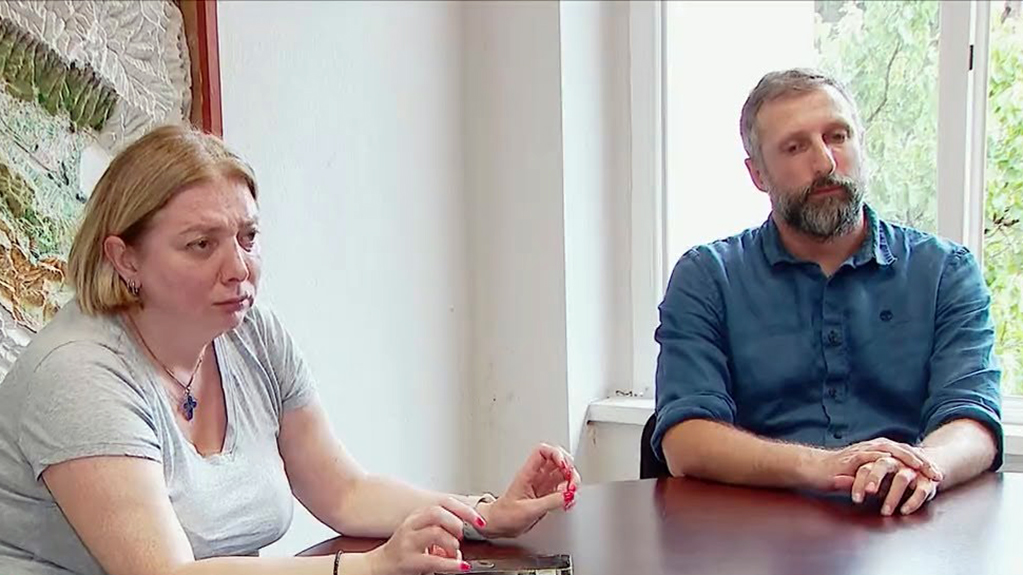Lasha Sukhishvili, the Deputy Director of the National Seismic Monitoring Center and Head of the Geography Department, who is investigating the Shovi disaster, was summoned to the investigative agency for questioning.
News
Lasha Sukhishvili and the Director of the National Seismic Monitoring Center, Tea Godoladze, published new research materials a week ago, which suggest that with the presence of advanced early warning systems, information about the Shovi disaster would have been available two hours earlier, allowing for an alarm to be issued. This opinion from the scientists contradicts the authorities' final report that the implementation of an alarm system would not have been effective in preventing the tragedy.
As Lasha Sukhishvili says, the investigator's questions were mainly related to seismic data, despite his prior explanation that he is not competent in seismology and that Tea Godoladze would be better suited to answer those questions.
"On Monday, an investigator contacted me regarding the Shovi tragedy, stating that it was necessary to interview me and include these materials in the investigative process, which, of course, is appropriate. However, during our conversation, it became clear that they were interested in seismic data. I told them that I am not a seismologist and that Tea Godoladze would provide more competent answers in this regard. I was told it was just a procedural matter to include the materials in the case and nothing more. Today, I went to the investigative agency, and it turned out that almost all the questions were related to seismology, which is not my area of expertise. Although I repeatedly stated that I don't know seismology, parameters, wave analysis, etc., the questions still focused on seismology. I was surprised and did not understand why the investigator was asking me about matters in which I am not competent," said Lasha Sukhishvili.
Tea Godoladze also questioned why the investigation was not interested in the satellite data on which Lasha Sukhishvili based his opinion that with advanced warning systems, the assessment of natural processes in Shovi "could have been done days and months earlier."
"The investigator was informed that this material was not analyzed by Lasha; I did it. Nevertheless, Lasha was summoned and asked questions on topics outside his competence, just as I cannot delve into the technical details of satellite analysis.
They are focusing on seismic data. It is alarming when I say that two hours before the event, there was a signal of a mountain slide. In this case, my opinion becomes the target. This is a scientific study, and people are not arrested for it, but the aim is to 'disprove' or cast doubt on my opinion. This is a scientific assessment, which the authorities find difficult to understand.
I had a reasonable suspicion that the case would be manipulated, as it turns out these materials will be sent to the National Environment Agency for examination, which is linked to the Samkharauli Expertise Bureau. Who should analyze this data? The National Environment Agency has no specialists, and neither does the Samkharauli Expertise Bureau.
There were also questions about our funding - 'Who funds you? Does the state finance you?' - which is very suggestive. Are they planning to cut our funding? What is going on? This is an attempt at intimidation and blackmail to silence us," said Godoladze.
Tea Godoladze has repeatedly been the target of attacks by the government and pro-government media for expressing differing expert opinions. On August 3, after the publication of the research materials, Prime Minister Irakli Kobakhidze, appearing on a television show, once again accused Tea Godoladze of "spreading a lot of false information."
At the same time, the head of the National Environment Agency, Vasil Gedevanishvili, dismissed the conclusion of an independent scientist, based on the records of the seismic station in the village of Ghar, as an attempt to mislead the public. This conclusion stated that the intense process of avalanche development on the Tbilisi glacier started two hours earlier, at 13:00, and that the transportation of debris in the Bubisskali valley began at 14:56. According to Gedevanishvili, this information "is not based on the results of studies" and "is based only on assumptions."
A year has passed since the tragedy in Shovi on August 3, 2023. Of the 33 people who died in the natural disaster, the body of one child has still not been found. The investigation, conducted by the Imereti Police Department, is proceeding under Article 116, Part 2 (causing death by negligence) and Article 240, Part 2 (violation of safety rules during mining, construction, or other work) of the Criminal Code. Non-governmental organizations demanded that the investigation be conducted under Articles 128 (abandonment in peril) and 342, but the prosecutor's office did not comply. One year after the tragedy, the prosecutor's office has not brought anyone to justice.















